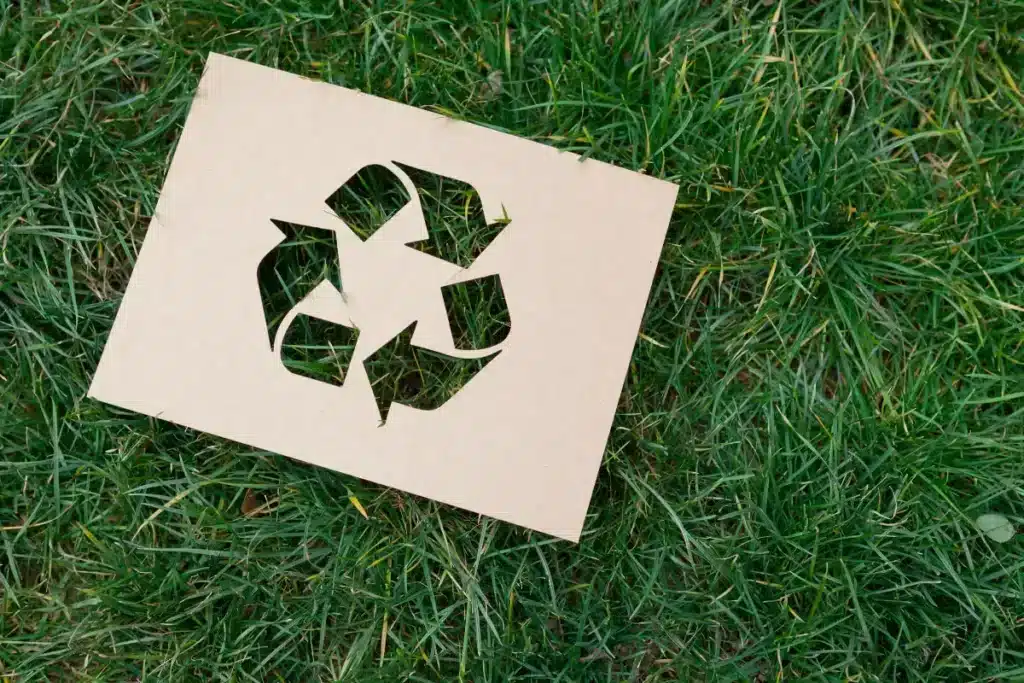Sustainable Packaging
Recyclable ● Biodegradable ● Certified
Through our Knockout Sustainability Initiatives, we provide full transparency and confidence that all components of your packaging are truly sustainable.
How does Knockout reduce the environmental impact of secondary folding cartons?
We use only:
- Paperboard from sustainably managed sources which are traceable.
- Inks, coatings, and adhesives that are environmentally friendly and do not contain harmful chemicals like BPAs, VOCs.
- Optimized production layouts for minimal waste and recycle any scrap materials.
- Manufacturers close to the delivery location to reduce the carbon footprint.
- Energy from renewable sources.
Learn more about Knockout’s Sustainability Initiatives below.
[Re]think Paper
Is the paper used in your packaging really ‘sustainable’? How do you know?
At Knockout we ensure this by only using paper that is Forest Stewardship Council (FSC) and/or Sustainable Forestry Initiative (SFI) certified.
FSC Certification ensures that stakeholders at all levels of the production process are complying with a certain set of standards and keep the chain of custody on pulp/paper material intact throughout the manufacturing process. This applies to various types of paper, with options ranging from virgin fiber to 100% PCW.Read More
This is important for transparency, so that brands can be confident that their packaging truly comes from sustainably managed forests where workers are treated fairly, local communities are taken into consideration and conservation efforts are in full effect.
Keep in mind that these standards are regional, and monitoring of the ethical aspects of the FSC Certification are done by manufacturing company managers, therefore vary by country. For this reason, at Knockout we only use North American FSC and/or SFI Certified paper, ensuring that the ethical standards that we adhere to are constant throughout the supply chain. This also allows our paper to have a lower carbon footprint than many Asian options that are transported to North America by sea or air.
Overall, transparency is key when determining whether your paper is truly sustainable. By using paper that is FSC and/or SFI certified, we know that the chain of custody is intact and we can verify that this paper was made with sustainably managed resources.
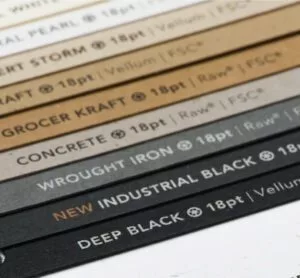
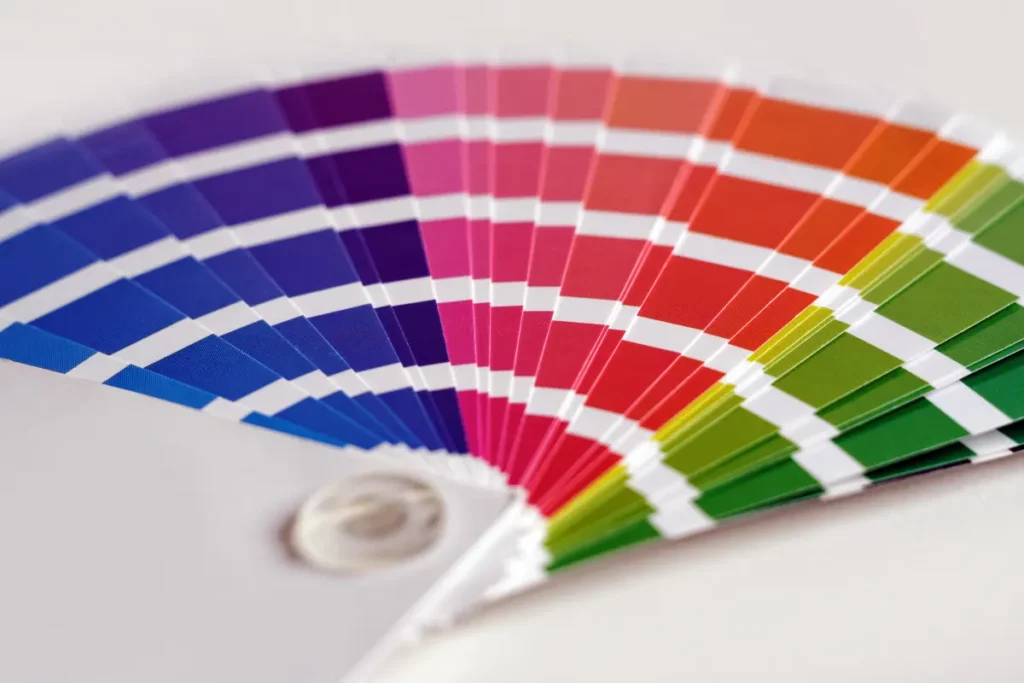
[Re]think Print
In addition to paper choice, the type of ink used is also important. Even if paper originates from sustainably managed resources, not using an environmentally friendly ink could affect your packaging’s recyclability.
Petroleum based inks can emit 25-40% VOCs (Volatile Organic Compounds) when they dry. VOCs negatively affect the health of production workers and the planet, and these inks do not easily break down, resulting in them leaching into soil or waterways once removed from the packaging during the deinking (recycling) process. These inks contain compounds like toluene, xylene and benzene, a known carcinogen, putting plants and animals at risk.
At Knockout, we use vegetable-based inks, which substitute petroleum for vegetable oil, such as soybean or corn. These inks also contain natural resins and wax as opposed to harsh chemicals. They have a VOC content as low as 4%, making them a healthier choice for the planet.
[Re]think Adhesives
Adhesives also affect recyclability.
During the recycling process, all adhesives must be removed from packaging to allow it to be properly processed and repulped. But this is often a tough task, depending on how much glue is used, the type of glue and how easily it can be separated from the pulp material.
So how do we hold the packaging together without impacting the recycling process?
Minimal glue – Recyclability starts at the foundation of packaging – structural design. Knockout designs packaging to require the least amount of glue possible, if any at all.
Safe glue – It is important that glue on packaging is water soluble, allowing it to be removed from the paper during the deinking process. When excess glue is used, or certain types of glue that do not easily break down in water, it becomes difficult to remove it from the paper pulp and often leads to recycling contamination.
No animal byproducts – Knockout uses glue that is not animal based or contains animal products, which is especially appealing to vegan or cruelty free brands.
No tape – Tape, which is often used to hold boxes together or products in boxes, can be difficult to separate during the recycling process. Knockout finds alternatives to using tape, making the recycling process more efficient.
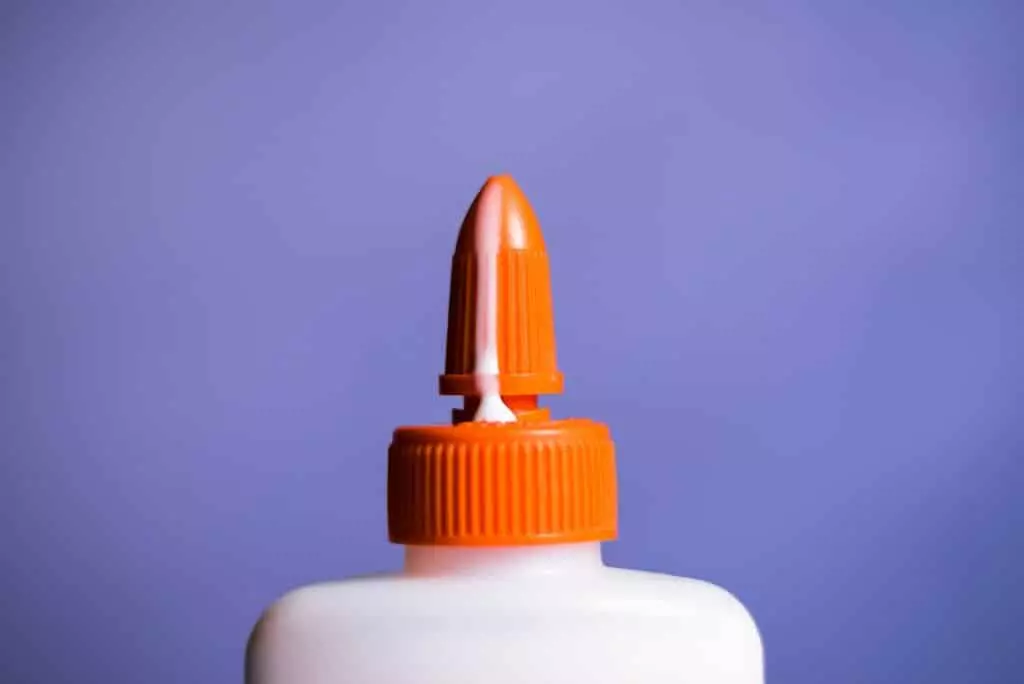
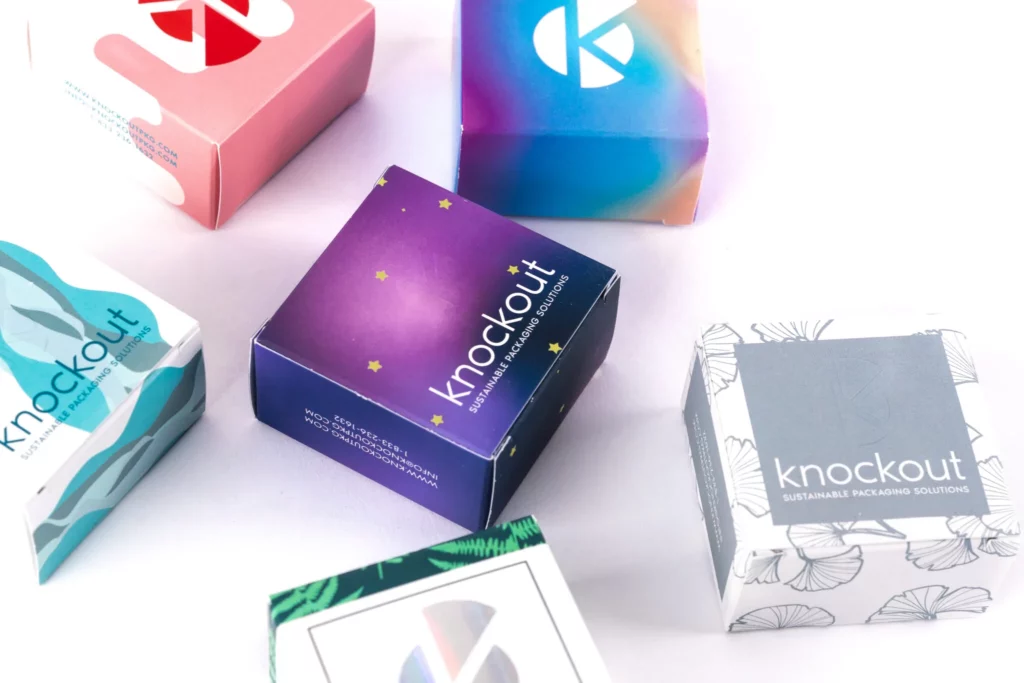
[Re]think Finishes
Finishing touches, such as laminated soft touch, spot UV for a shiny effect, or metallic foil, are not all eco-friendly, especially when used in excess.
While lamination offers some protection in a retail setting, it covers the entire carton in a layer of plastic, rendering it non-recyclable.
Spot UV can be difficult to remove from packaging as it hardens like a resin and contains Bisphenol A (BPA), which is high in VOCs, endangering workers when applying it and potentially consumers as they are handling this packaging or storing it in their homes.
Foil, in small amounts (less than 20% of the surface area of a carton), can be removed during the deinking process, but once too much foil is applied, it acts like a laminated layer and paper is not easily separated from it.
Knockout prefers to use alternative finishes, such as aqueous coatings or embossing, which imprints a pattern into the paper, rather than applying anything additional and does not affect recyclability.
[Re]think Recycling
Knockout helps brands ensure their cartons are made with all recyclable components, helping to eliminate fears around recycling contamination, and ultimately, polluting the planet with unsafe chemicals and toxins.
